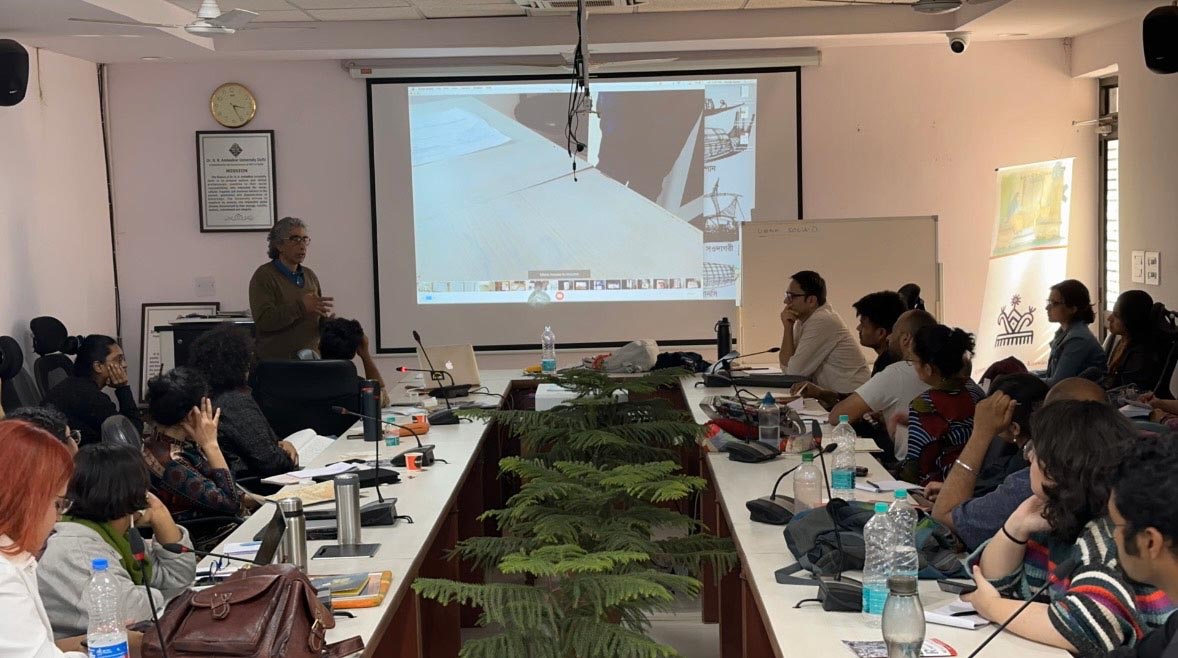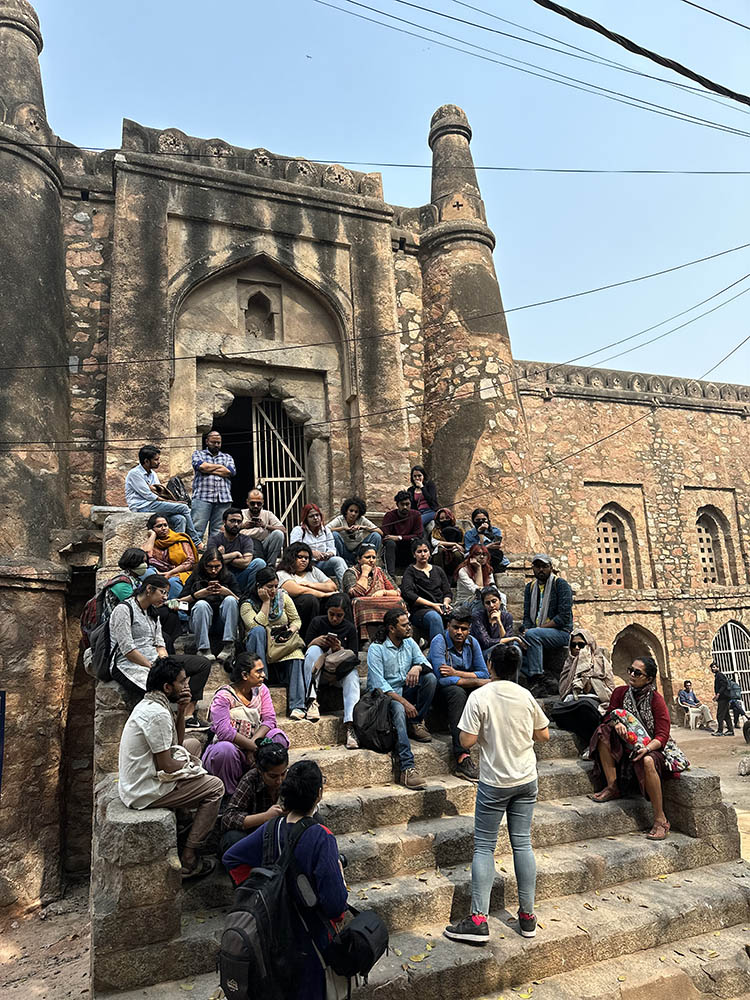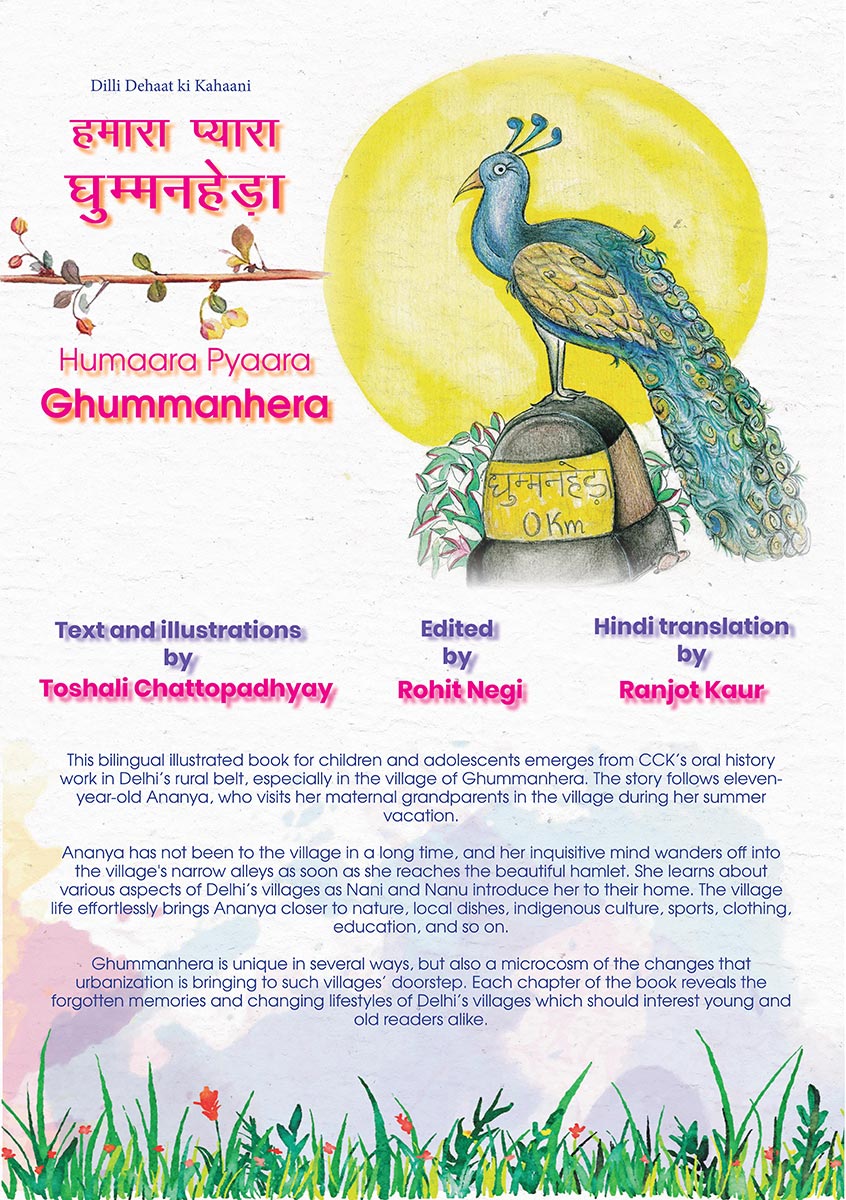Blog

- School
Reading Cities through Neighborhoods Winter School in Community-based Research and Engagement
The Centre for Community Knowledge (CCK), an anchor institution of Humanities Across Borders (HAB) program, organized a six-day winter school at AUD’s Karampura Campus in West Delhi from 15-20 February 2023. The School was one of the various HAB events and activities being carried out by CCK since 2017. These have included oral history research, setting up of neighborhood museums, publications, and production of multimedia content. In a sense, the Winter School was a culmination of the ongoing work and learnings from HAB.
The School was organized with three main objectives. First, it was a pedagogical intervention designed to share CCK’s HAB work and methods with the wider community of researchers and practitioners. Second, to promote conversations around the place of place, heritage, and community knowledge in the backdrop of rapid urban transformations. Third, to help build a community of interested individuals with some shared understanding of and stake in these issues.
There were thirty-two participants from different parts of the country and from all walks of life. They included doctoral candidates, masters and undergraduate students from institutions like AUD, Jawaharlal Nehru University, University of Delhi, Indian Institute of Technology-Bombay and Hyderabad, and the University of Mumbai. Other participants included journalists, theatre and art practitioners, community activists, and independent researchers. In addition, Dr. Jyothi Thrivikraman from Leiden University College, a member of HAB, also participated in the Winter School, which provided the opportunity to discuss programme matters alongside the planned activities.
The Winter School comprised of workshops in ‘Walking as Method’, ‘Mapping Neighbourhoods’, ‘Oral History’, and ‘Digital Storytelling’ conducted by experts, including HAB practitioners Mesha Murali and Surajit Sarkar. These were undertaken in an interactive and hands-on manner wherein participants got to learn and practice new skills or refine the ones they had prior experience of.
 Surajit Sarkar at the the workshop on Digital Storytelling. Photo by Dharmender Kamal Kishore
Surajit Sarkar at the the workshop on Digital Storytelling. Photo by Dharmender Kamal Kishore
 Ekta Chauhan leading a walk through Delhi's Khirki urban village. Photo by Dharmender Kamal Kishore
Ekta Chauhan leading a walk through Delhi's Khirki urban village. Photo by Dharmender Kamal Kishore
There were plenary lectures in the evenings by noted scholars and practitioners on various aspects of oral history, sensory reading of cities, and creative urban storytelling. Speakers included historians Swapna Liddle and Yogesh Snehi, sociologist Ishita Dey, and artist Bhagwati Prasad.
Guided walks in the Karampura area and the urban village of Khirki were conducted to appreciate the multi-layered nature of urban neighborhoods.

- Log in to post comments
“I think the interactivity of the sessions was a huge plus for me because I didn't just pick up from the instructors but from my peers. It was wonderful to have people across disciplines and universities to contribute to the sessions.”
“The workshops were incredible! I was able to learn so much that added to my knowledge of oral history and the ethics surrounding it as well as prompted me to think in many different ways”
“I think the activities planned for each session were so simple but so useful. They'll be some of the biggest takeaways each time I undertake a project on my own.”
“The plenaries were absolutely amazing. Their research experiences were very insightful.”


